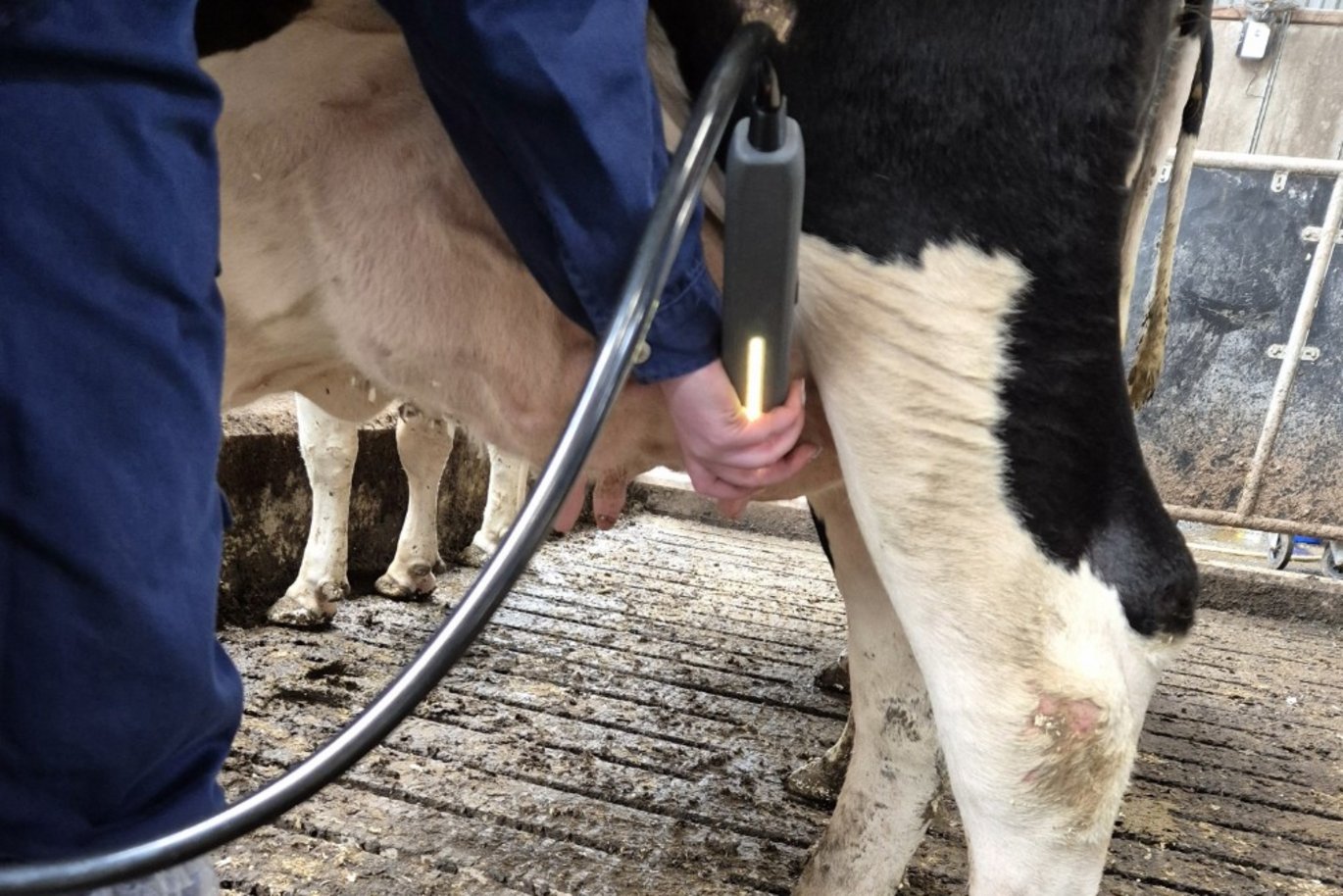Laser light could be the future weapon against mastitis in dairy cows
Can laser therapy replace antibiotics in treating mastitis in cows? This will be investigated in a new collaboration between Aarhus University and the company Neeo Aps.

Mastitis is a common cause of reduced milk production in cows. It also results in lower milk quality and increased antibiotic use. Milk from cows treated with antibiotics is discarded, not reaching supermarket shelves, causing significant food waste and economic loss for farmers. High antibiotics use also contributes to the development of resistance, which is detrimental to both animal and human health.
Laser therapy could be an alternative to antibiotics. Smaller studies have shown potential, but solid scientific evidence of its effectiveness in larger, more controlled studies on cows is lacking. A new project supported by the Green Development and Demonstration Program (GUDP) aims to address this gap.
Discovered by chance
The idea originated with a woman who couldn't overcome her painful breast infection despite repeated antibiotic treatments. After a few laser treatments, she was cured. Her husband, a farmer, said, "If only it were as easy to cure mastitis in my cows." Thus, the concept was born, and the foundation for a new method and business was created at the company Neeo Aps.
Development and Testing Equipment
Part of the project involves Neeo Aps further developing the laser equipment for treating cows with mastitis. This is because the original laser was developed for humans and is not suitable for a cow's udder, nor is it practical or ready for mass production. There's also a need to document whether laser treatment works on cows with mastitis. This is where researchers at Aarhus University will play a crucial role.
Controlled experiment
In a controlled experiment, researchers will induce a short-term, mild form of mastitis in dairy cows using LPS, a substance purified from gram-negative bacteria. LPS is often used in clinical studies because it can induce fever and affect the immune system similarly to inflammation. In this experiment, researchers will compare the effect of laser therapy on one group of cows with another group receiving an ineffective treatment with red light. Researchers will closely monitor the cows' welfare, health, milk production, and milk quality to assess the effectiveness of laser therapy.
On-farm trial
In the second part of the project, laser therapy will be tested in a large trial in commercial herds. Here, laser therapy will be compared with traditional antibiotic treatment to see if it is equally effective in curing mastitis.
A win for all
If laser therapy proves effective, it will benefit the animals, the farmers, and society. It could pave the way for a new and sustainable method of treating mastitis.
"With this project, we have a unique opportunity to test an alternative treatment for mastitis. In the future, it could potentially reduce the use of antibiotics in milk production. It also has the positive effect of reducing food waste because less milk will be discarded," says Associate Professor Vivi Mørkøre Thorup. She leads the work package that will investigate the effect of laser therapy in commercial herds.
Consumers are increasingly demanding products produced with high sustainability and good animal welfare. A successful introduction of laser therapy could therefore give Danish farmers a competitive edge in the market.
Additional information | |
We strive to ensure that all our articles live up to the Danish universities' principles for good research communication (scroll down to find the English version on the web-site). Because of this the article will be supplemented with the following information: | |
External funding | Green Development and Demonstration Programme (GUDP) |
External collaborators | Neeo Aps |
Read more | |
Contact information | Vivi Mørkøre Thorup vivim.thorup@anivet.au.dk |
